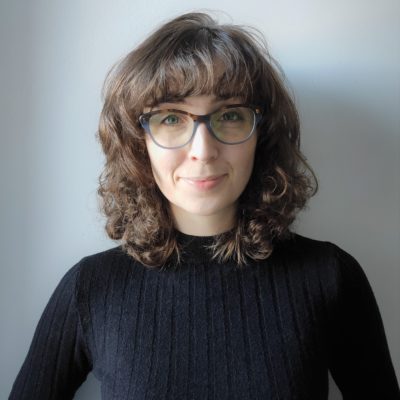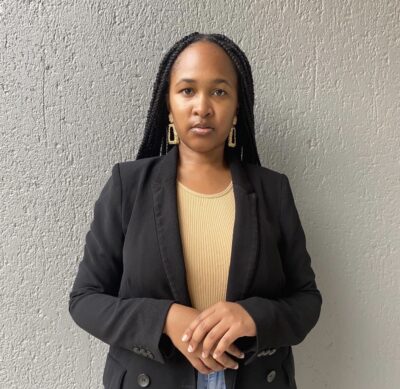This project builds on past and ongoing collaboration of urban researchers from three universities—York University (Canada), Michigan State University (USA), and University of the Witwatersrand (South Africa). Starting with the collaboration among these three universities, we hope to build a global network of universities and research centers in the long term, to collectively investigate pandemics and the urban future from a comparative perspective.
Co-Investigators

Professor Philip Harrison 
Professor Roger Keil 
Professor Xuefei Ren
Professor Philip Harrison is the South African Research Chair in Spatial Analysis and City Planning funded by the National Research Foundation and hosted by the University of the Witwatersrand. From 2006 to 2010 he was Executive Director in Development Planning and Urban Management at the City of Johannesburg. Prior to that, Professor Harrison held academic positions at the Universities of the Witwatersrand and Natal. He served as a member of the National Planning Commission in the Office of the President from 2010 to 2015, participating in the formulation of the National Development Plan. Professor Harrison has published widely in the fields of city planning and regional and urban development. His most recent book publication is the jointly edited Densifying the City: Global Cases and Johannesburg.
Professor Roger Keil is a political scientist working on local, urban and regional politics, urban geography, and urban studies. His substantive research areas are urban political ecology, cities and infectious disease and global suburbanization. As the founding director of York University’s City Institute (CITY) from 2006 to 2013, Professor Keil led a large international project on “Global Suburbanisms: Governance, Land and Infrastructure in the 21st Century” (2010-19). From 2015 to 2019 he held a York Research Chair in Global Sub/Urban Studies. Professor Keil has generated a series of highly recognized articles on the relationship of urbanization and infectious disease, including a co-edited book Networked Disease (2009; with S.Harris Ali) which was named as one of “ten books that offer lessons from past pandemics” by the Globe & Mail in 2020. Recently, Professor Keil was co-investigator of an International Development Research Centre sponsored research project led by S.Harris Ali and Mosoka Fallah on community responses to Ebola in West Africa and the Democratic Republic of the Congo.
Professor Xuefei Ren is associate professor of sociology and global urban studies at Michigan State University. Her work focuses on urban development, governance, inequality, and the built environment in global perspective. She is the author of three award-winning books: Governing the Urban in China and India: Land Grabs, Slum Clearance, and the War on Air Pollution (Princeton University Press, 2020), Urban China (Polity, 2013), and Building Globalization: Transnational Architecture Production in Urban China (University of Chicago Press, 2011). She is a Public Intellectual Fellow of the National Committee on U.S.-China Relations. Her current project examines urban governance and pandemics in comparative perspective, focusing on the Chicago metropolitan region and cities in China and India. Her work has been supported by the Woodrow Wilson International Center for Scholars, Andrew Mellon Foundation, the American Council of Learned Societies, and Urban Studies Foundation.
Research Assistants

Marshall Averill 
Hillary Birch 
Anelisa Geca 
Brian Murahwa 
Rupita Tahsin
Marshall Averill is a Master of Public Policy student at Michigan State University. He graduated from Eastern Michigan University in 2014 with a Bachelor's degree in Political Science. After graduating, he dedicated a year to national service with AmeriCorps, working on foreclosure prevention and community education for personal finance. That project evolved into full-time work with United Way of Washtenaw County, where he stayed until 2018. Since 2018, Marshall has been working with a scholarship program for low-income, first generation and POC students as a student success coach.
Hillary Birch is a PhD student in Environmental Studies in the Faculty of Environmental and Urban Change at York University where she is a SSHRC Doctoral Fellow and a Dahdaleh Global Health Graduate Scholar. She holds a Master’s degree in urban governance from Sciences Po, in Paris, France where she studied the urban governance of Ebola in Monrovia, Liberia. She also holds a Master’s degree in Political Science from McGill University. Hillary has worked in various roles related to global health concerning sexual and reproductive health and early child development. Her PhD explores how projects of global health intersect with processes of urbanization that shape flows of water in a city and change its quality.
Anelisa Geca is currently pursuing an MSc in Construction Project Management at the School of Construction Economics and Management from the University of the Witwatersrand. She holds an undergraduate honours degree in Urban and Regional Planning from the University of the Witwatersrand where she also worked as a research assistant. Anelisa is interested in studying what shapes urban spaces, the roles different players take in developing cities, and how to make cities more accessible. She is also interested in understanding the role of construction in shaping urban space, including how design, construction, development, and related environmental policies change urban life.
Brian Murahwa is a social scientist with particular interests in interdisciplinary urban research. Brian recently completed his PhD in Urban and Regional Planning from the University of the Witwatersrand. His research interests lie at the intersection of theory and practice in the fields of urban planning and management; migration, labour market dynamics; religious urbanism; public health, and urban violence. His PhD research explored the intersection of Pentecostal religion and urban space in the making of everyday city life in Johannesburg.
Rupita Tahsin is a PhD student in Geography and Planning at Michigan State University. She holds a Bachelor’s degree in Urban and Regional Planning from the Bangladesh University of Engineering and Technology and a Master's in Environmental Economics from Dhaka School of Economics, Dhaka University. Previously, she worked at the United Nation Development Program on the LIUPC (Livelihoods Improvement of Urban Poor Communities) project as a Program Officer. Rupita's PhD research examines how migrants are vulnerable towards climate change, including the role of built environment design in mitigating climate change impact and associated health risks for coastal urban communities in South Asian cities.
